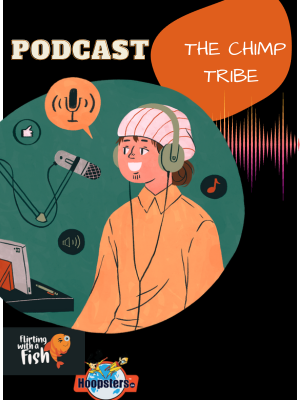
|
WHAT IS MENTAL HEALTHsource : WWW.WHITESWANFOUNDATION.ORGThe World Health Organization (WHO) defines mental health as -A state of wellbeing in which the individual realizes his or her own abilities, can cope with the normal stresses of life, can work productively and fruitfully, and is able to make a contribution to his or her community.? Elaborating on this definition,it refers to the state of a person?s mind; this includes both their emotions and thoughts. They play a role by influencing how we behave in our daily life and in the social spaces we occupy. The term thoughts refers to our cognitive functioning which includes different mental abilities. learning a new concept, exercising powers of reasoning, remembering or retaining information, problem-solving and decision-making skills as well as being able to pay attention. Mental health exists on a spectrum. Just as with physical health we can be in good mental health, or poor mental health; neither of these states are static. Where we are on the spectrum at any given point in time depends on different factors that can impact our thoughts and emotions, and as a result, our behaviors. Checking in on your mental health To know where you place on this spectrum at any point, you can ask yourself the following questions: |

|
WHAT IS A MENTAL ILLNESS?source : WWW.WHITESWANFOUNDATION.ORGMental illness refers to health conditions that affect a person emotionally, psychologically, and behaviourally. Like in the case of a physical illness, this too requires treatment. They are caused due to a combination of biological (like genetic predisposition), psychological (trauma, for instance), and social factors (such as discrimination). The two widely established systems of mental illnesses classification are: - ICD-10: Chapter V of the International Classification of Diseases by World Health Organization (WHO) - DSM-5: The Diagnostic and Statistical Manual of Mental Disorders by the American Psychiatric Association More than 250 psychiatric disorders have been identified and named in these manuals Mental illnesses can be divided into seven different categories. They are: Mood disorders A disturbance of mood that is prolonged and severe in nature, causing a significant amount of distress in the individual's life. Examples of mood disorders include depression, bipolar disorder amongst others. Anxiety disorders A category of disorders where anxiety (excessive worrying, irrational thoughts, apprehension) is the main characteristic feature. It can be in response to a specific trigger (such as having a phobia), but this need not necessarily be the case always. An anxiety disorder can manifest in the form of a heightened state of worry, tension and excessive apprehension caused without any apparent reason. These symptoms can significantly affect a person's daily functioning. Personality disorders A personality is the way an individual thinks, feels and behaves that makes them different from someone else. An individual's personality is influenced by several factors,their experiences; environment (including their childhood and life circumstances), and inherited characteristics. The personality typically stays the same throughout their life. A personality disorder is when an individual has unhealthy patterns of thoughts and emotions that impact their behavior and make it difficult for them to function. Psychotic disorders Psychotic disorders (such as schizophrenia) refer to illnesses where there is an onset of psychotic symptoms that may include delusions, hallucinations, disorganized speech or behavior, or being in a catatonic (motionless or sitting still for long hours) state. This can be a condition that lasts for a few days, or one that needs to be managed on a long-term basis like in case of a chronic physical illness. Eating disorders An unhealthy pattern of eating that can cause harm to the physical or emotional health of the individual. The most common examples include anorexia (anorexia nervosa), bulimia (bulimia nervosa), and binge-eating disorder (BED). Trauma-related disorder like post-traumatic stress disorder (PTSD), are illnesses caused due to the impact of trauma on the person's mental health. Substance abuse disorders Disorders that stem from an excessive and harmful use of a substance like alcohol, nicotine, prescription and recreational drugs, are defined as substance abuse disorders. |

|
THE MOST COMMON MENTAL ILLNESSES IN INDIAsource : WWW.WHITESWANFOUNDATION.ORGThese are mental illnesses whose prevalence is higher as compared to other illnesses: Depression related disorders In India, one in ten people live with depression, according to the National Mental Health Survey, 2016. It’s a common mental illness with symptoms that affect a person’s thoughts, behavior, and emotions. It can affect a person at any point, regardless of their gender, sexuality, social and economic location. Some common types of depression include • Clinical depression • Postpartum (or postnatal) depression (PPD) • Premenstrual dysphoric disorder (PMDD) • Seasonal affective disorder (SAD) Depression can occur in any stage of life: childhood, adolescence, adulthood and old age. Anxiety related disorders Anxiety disorders affect 3.6 % of the population in the country, according to the National Mental Health Survey, 2016. Anxiety disorders usually exist on a spectrum, and are caused by numerous factors like family history, stressful events, health issues, substance abuse and personality factors. The most common forms of it include— • Generalized anxiety disorder (GAD) • Obsessive compulsive disorder (OCD) • Panic disorders • Social anxiety disorder (SAD) • Phobias |

|
FAQs ABOUT MENTAL HEALTH ILLNESSsource : WWW.WHITESWANFOUNDATION.ORGQ : What is a mental illness? A : A mental illness refers to a health condition that affects a person emotionally, psychologically, and behaviourally. Like a physical illness, a mental illness also requires professional treatment. But, unlike some physical illnesses, mental illnesses are caused by a combination of biological changes, psychological factors and the socio-economic circumstances of a person. Q : How are mental illnesses treated? A : They are treated with a combination of therapy and medication depending on the severity of the illness. Some may not even require medication, and can be addressed with psychotherapies like cognitive behavioral therapy. Q : Who should I consult if I have a mental illness? A : If you suspect that you or someone you know has a mental illness, you should consult a mental health professional. They could be a counselor, psychologist or psychiatrist. A counselor is trained in the art of listening and uses their skills to help the person analyze their problems, and find a rational solution. If the counselor observes that counseling isn't addressing the person's needs because the underlying condition is severe and may need treatment, they refer the person to a mental health expert for diagnosis, treatment, therapy, or medication, as the case may be. A psychologist has a degree in psychology and is an expert in human behavior. They use scientific methods to study the factors that influence people's thoughts, perceptions, emotions, and actions. They use evidence-based strategies and interventions to help people overcome challenges and cope with life issues such as relationship problems, parenting issues, challenges in adolescence, lifestyle effects on health and chronic illness. A psychiatrist is a physician who specializes in the diagnosis and treatment of mental health problems. During their extensive medical training, they’re trained to understand the brain's functions, and the complex relationship between the body and brain. They are best qualified to distinguish between physical and psychological causes of mental and physical distress, and are also the only mental health professionals who can prescribe medication.. Q : A re mental illnesses curable? A : Depending on the cause of the mental illness, it could be curable. Nonetheless, mental illnesses can be treated and managed with therapy and medication. Some mental illnesses like bipolar disorder and schizophrenia require medication while illnesses like depression and anxiety disorders can sometimes be treated with just therapy. Remember: • Mental illness has nothing to do with the person’s ‘mental strength’ • Mental illnesses are non-communicable • Anyone can have a mental illness at any point in time • Mental illnesses are treatable A person with mental illness needs the support from their loved ones and the community they live in, to recover |

|
FAQs ABOUT TREATMENT FOR MENTAL HEALTH ISSUESsource : WWW.WHITESWANFOUNDATION.ORGQ : How are mental illnesses treated?A : Mental illnesses are treated with a combination of therapy and medication depending on its severity. Some may not even require medication, and can be addressed with psychotherapies like cognitive behavioral therapy or even a lifestyle change. Q : Why is medication prescribed? A : Psychiatric medication is prescribed to manage the symptoms of the mental illness, primarily to enable the person to engage in therapy. There are five types of psychiatric medication: • Antidepressants • Antipsychotics • Anxiolytics (anti-anxiety) and hypnotics (sleeping aids) • Mood stabilizers • Stimulants (used to reduce drowsiness and elevate mood) It is illegal to purchase psychiatric medication without a prescription. A prescription can be made only by a psychiatrist. Q : What is therapy? A : Psychotherapy uses scientifically tested procedures to help a person manage their thoughts and feelings, and develop healthier habits. It offers a supportive, non-judgmental environment for them to be able to speak openly about their problems and share their emotions; helping them change unhealthy thought and behavior patterns. Q : What is psychiatric hospitalization? A : Psychiatric hospitalization is when a person is admitted into a mental health establishment for any length of time. This can range between a single day to a few months, and provided in-patient care. Psychiatric hospitals are meant to provide a safe environment where a person can recover with the help of a structured environment and therapy. Q : When can I stop taking medication that I have been prescribed? A : You must never stop your medication without consulting a psychiatrist, otherwise this may have an adverse effect on your brain. Once you no longer require medication, your psychiatrist will safely wean you off them. Most mental illnesses are treated with medication only temporarily to manage symptoms. There are exceptions such as bipolar disorder and schizophrenia where medication might be used for much longer periods of time. Q : Does medication make you emotionally numb? A : Another common concern is that psychiatric medication numbs down emotions. There are multiple side effects that can arise from taking psychiatric medication. If your medication is making you feel numb or causing other side-effects like insomnia or low libido, you must get in touch with your psychiatrist so that the prescription can be amended. The medication is to help you get better; your feelings and comfort are of utmost importance. |






























